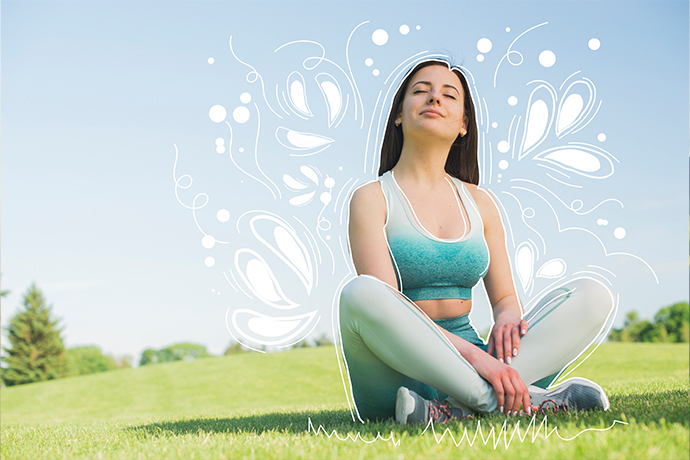 SPEAKERS
SPEAKERS
 TOPICS
TOPICS
Discover which physical activities enhance your well-being and boost your mood. Uncover the inspiring link between exercise and mental health benefits.

In our fast-paced world, the connection between exercise and mental health has become more vital than ever. Physical activity isn't just about maintaining a fit body; it's a powerful tool to uplift your spirit. By incorporating regular physical activity, you not only enhance your physical attributes but also embark on a journey toward mental fortitude. From easing stress to boosting confidence, discover how the right exercises can transform your life.
The benefits of exercise and mental health are immense and inspiring. Physical exercise offers a rejuvenating break from daily stressors, renewing your mental clarity and focus, which can lead to a more positive outlook on life.
When indulging in physical activity, your body releases endorphins, often known as the "feel-good" hormones, which amplify mood and foster optimism. This natural mood lift contributes significantly to your emotional resilience, making you better equipped to handle life's challenges.
Furthermore, establishing a regular exercise routine can be transformative, infusing life with renewed energy and vitality. This not only encourages continuity but also reinforces the intrinsic link between physical exercise and mental health. The profound connection ensures that every movement you make serves a dual purpose: strengthening the body and nurturing the spirit.
Exercise can be the key to unlocking one's full potential. Embodying an active lifestyle opens the door to a world of possibilities, expanding your horizons and elevating your overall sense of well-being. Therefore, the benefits of exercise and mental health extend far beyond the visible physical improvement, creating a robust foundation for a healthy and fulfilling life.
Activities such as yoga and tai chi, which focus on breathing and calmness, are excellent for reducing stress. These exercises provide more than just a relaxing effect; they foster a deep connection between physical exercise and mental health. By promoting mindfulness and balance, they help create a serene state of mind, which is crucial for accumulating internal strength.
Similarly, high-intensity activities, like circuit training or spinning, release endorphins that act as natural mood lifters. This surge of energy can be particularly effective in combating feelings of fatigue and anxiety. High-energy workouts not only help in achieving physical fitness goals but also invigorate the mind. By challenging the body, these exercises instil a sense of accomplishment, enhancing one's self-esteem. Whether you're drawn to slower-paced exercises or high-energy workouts, the key is consistency.
The relationship between exercise and mental health benefits is undeniable. Activities that encourage both physical exertion and introspection, like dancing, offer a compelling blend. Dance, for instance, not only boosts cardiovascular health but also acts as an expressive outlet. When we move rhythmically to music, we're engaging in a therapeutic process, one that is deeply rewarding both physically and mentally. The social aspect of dance can further enhance its efficacy in improving mental health.

Many public figures have shared how exercise transformed their mental health. Ben Lindsay OBE often emphasises how staying active helps maintain his focus and drive. Engaging in regular physical activity has been a cornerstone in his journey towards achieving balance and harnessing positive energy in his demanding roles. It's not merely about keeping fit; for Ben, it is about staying mentally agile and spirited in the face of challenges.
Similarly, Darren Edwards talks passionately about how physical challenges can lead to personal growth. His story is an inspiring example of how adversity can be turned into a motivational tool, driving personal evolution. Darren often recounts moments when the physical discipline of training translated into mental fortitude, helping him navigate and conquer complex life situations.
The journey of Debra Searle MBE showcases the resilience one can develop. Her story illustrates how activities like rowing can provide mental clarity and strength. During her solo Atlantic crossing, it was not just physical stamina that was put to the test but her psychological endurance too. The rhythm of rowing became symbolic of perseverance and inner strength, creating a mental sanctuary in the vastness of the ocean.
Such narratives address the question does exercising help mental health by offering a transformative experience. Each figure exemplifies how incorporating physical exercise into their daily lives can dramatically reshape their psychological landscapes. They demonstrate that the benefits of exercise and mental health are not confined to the body but pervade the mind, offering solace, strength, and self-discovery.
Engaging in regular activity provides a natural boost to your mental faculties. As Dr. Aaron Balick suggests, exercise can be a powerful tool for mental well-being. It enhances creativity and problem-solving, making you more efficient in daily tasks. Sport isn't merely about physical exertion; it's an emotional release. Many find that the rhythm of regular workouts becomes a form of meditation, offering a mental sanctuary amidst the chaos of daily life.
Working out stimulates the release of brain chemicals, strengthening your overall composure. According to many psychology experts, exercise acts as a bridge, connecting body and mind in harmony. This connection leads to increased alertness and improved memory. Furthermore, the discipline acquired through consistent physical activity mirrors that of mental resilience, teaching perseverance even when faced with challenges. Over time, the cumulative impact of exercise builds a robust foundation for handling life's psychological demands, fostering both mental and emotional strength.
The benefits of exercise and mental health are long-lasting, bringing a profound impact that can be felt throughout one's life. Incorporating exercise into your daily routine can improve life quality across the board, contributing to a more balanced and vibrant lifestyle. From enhancing your mood to fostering resilience, the connection between physical exercise and mental health is undeniable.
The journey to better mental health through exercise isn't about perfection but progression. Embrace the path, enjoy the journey, and let it become a part of who you are. Exercise is not just a physical activity but an emotional and mental journey that promotes self-discovery and acceptance. Each movement propels you towards a stronger, more resilient self, reinforcing the principles of patience, perseverance, and positivity.
In the words of renowned mental health speakers, let every stride, stroke, and stretch be a step toward a healthier, more fulfilling life. These transformative experiences attest to the fact that exercise is good for mental health. By making exercise a lifelong companion, you are carving a path of sustained mental well-being, inviting a sense of joy and accomplishment into everyday life.
Ultimately, the journey of exercise is about finding the connection that inspires you. Discovering which activity aligns with your spirit allows you to harness its power most effectively. By committing to this lifelong partnership, you are nurturing a reservoir of mental strength, ready to support and guide you through life's varied landscapes.
